Hi Dr. Rochelle, please introduce yourself to our readers
My name is Rochelle Jensen. I am a 37 year old Australian veterinarian living and working in Auburn Alabama, United States. I came to the United States in 2014 to pursue a residency in comparative theriogenology in 2014. I then chose to stay in the area and I currently work at Opelika Animal Hospital as a small animal practitioner.
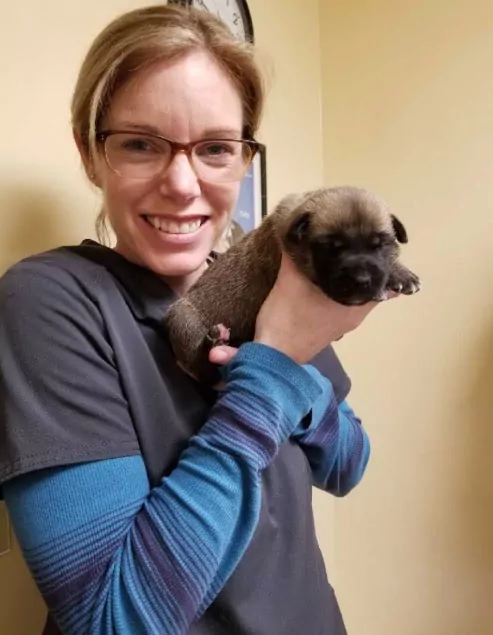
Why did you decide to become a vet?
Unlike many veterinarians, I didn’t have childhood dreams of becoming a veterinarian. In fact, the idea did not even occur to me. I always had an affinity for animals. I grew up on a farm. I collected all types of scaly and furry pets including horses, dogs, cats, rats, birds, snakes etc etc etc. I dreamed about becoming an olympic horse rider.
I started my career as a horse riding instructor. I co-owned a riding school in the south pacific island of Vanuatu. After many years I became more and more hungry for intellectual knowledge. I also experienced a number of lameness and health issues with my own horses. I finally made the decision to pack up my life and move back to Australia. I then made it my mission to gain entry to Veterinary Science at university. If I had to give a short answer to “Why did I decide to become a veterinarian”, the answer is “A hunger for knowledge”.
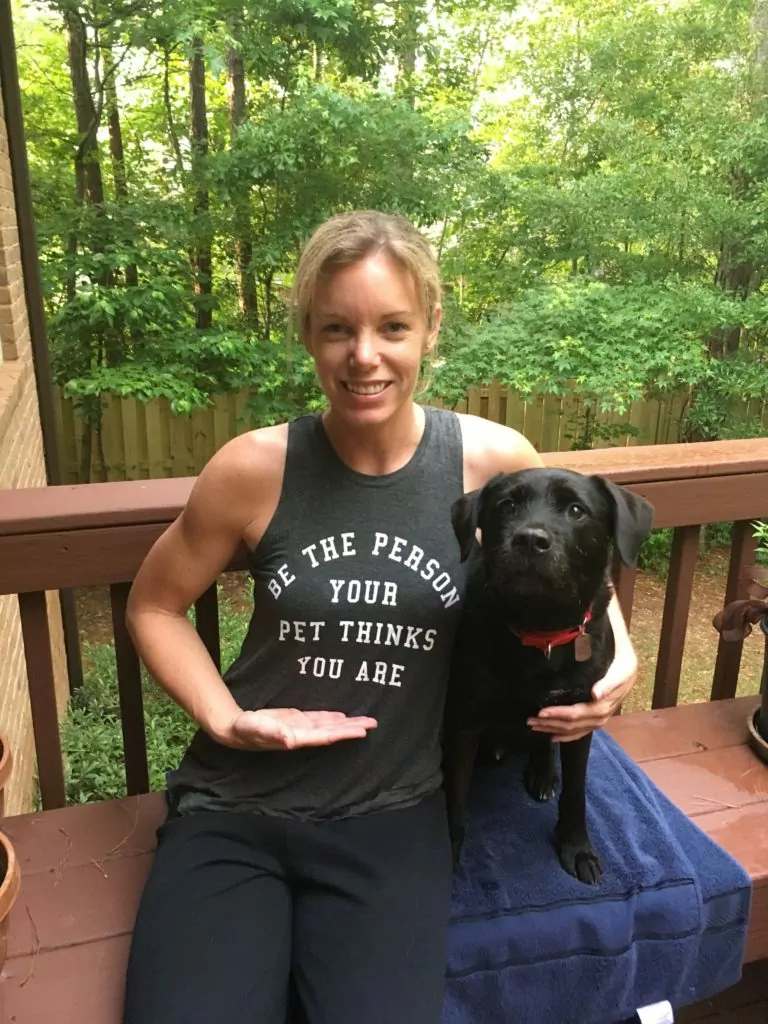
Where did you study?
I obtained a Bachelor of Veterinary Science from James Cook University, Queensland, Australia in 2012. I loved my experience there and those 5 years remain some of the best years of my life. Compared with many other Australian universities, James Cook had smaller class sizes, around 100 students. This allowed for a more personal learning experience and the chance to really get to know my peers. I still regularly skype my college friends. We shared this unforgettable journing. Tears, frustration, joy, relief all off it. Besides a great learning environment, James Cook University is in Townsville. Townsville is a paradise on the coast, adjacent to the Great Barrier Reef and a stone’s throw from the Daintree rainforest. Who wouldn’t want to study here?
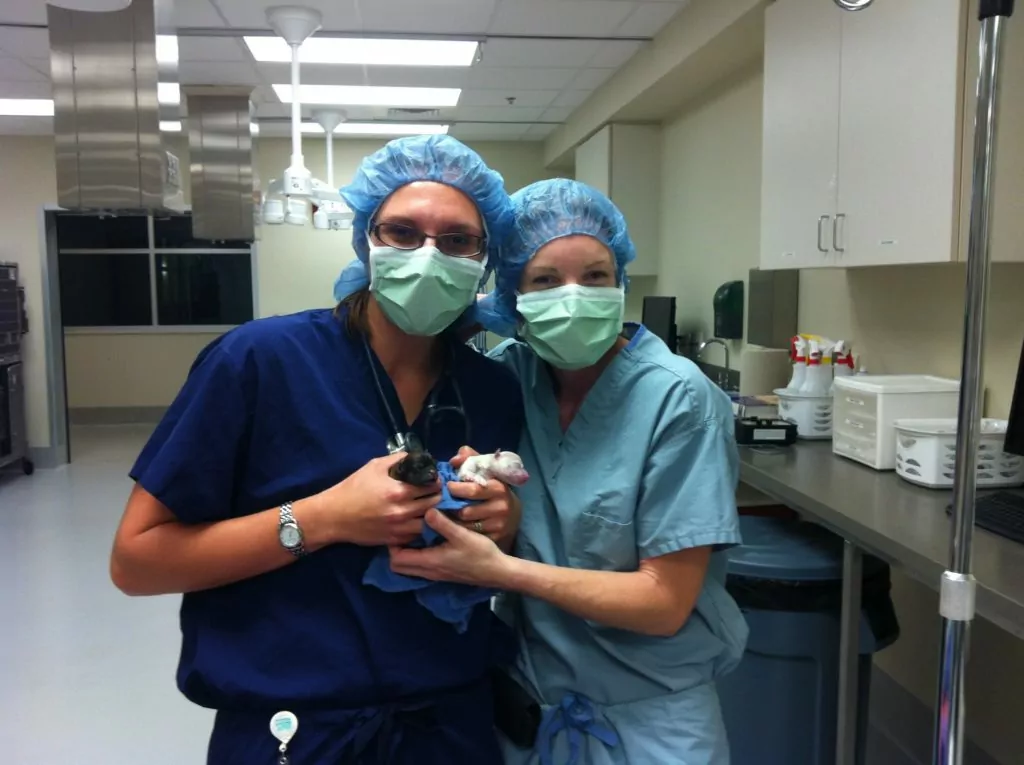
Tell us more about your specialty in theriogenology?
As a theriogenologist, I specialize in the field of animal reproduction. I focus on both pathology and physiology of male and female reproductive systems. This covers obstetrics, gynecology, andrology, and neonatology. The term “Therio” means beast or animal, “gen” is the genesis, as in generation or creation.
To become a Theriogenologist, I undertook a 2 year residency training program where I worked under the direct supervision of boarded specialists with the American College for Theriogenologists. Following the training program I sat a rigorous 3 day examination, encompassing all aspects of theriogenology.
I now work in a private practice where I provide reproductive services. This includes fertility evaluation, breeding management, semen evaluation, semen freezing and shipping, pregnancy diagnosis, high risk pregnancy management, dystocia management, and neonatal care.
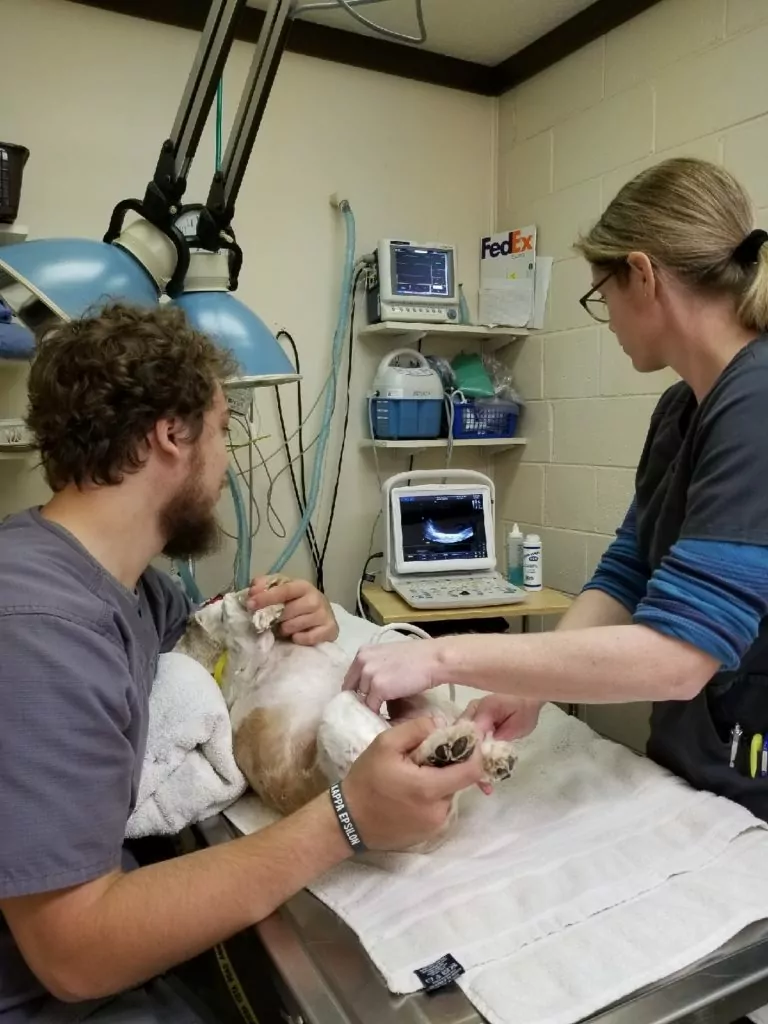
My most memorable vet case is not overly unique. I was providing equine stud work for a beautiful farm and was asked to flush an embryo from the owner’s prize mare. When we “flush an embryo”, we flush the embryo from the mare’s uterus and it is placed within the uterus of a recipient (surrogate) mare. This way, the prize mare does not carry her own foal. She is free of any risk of disease or injury associated with pregnancy and foaling. She is also free to continue training and competing. I remember being very nervous because this was the first mare embryo I would flush without the supervision and guidance of my mentors. I had performed the procedure many times before but this time it was just me working solo.
The procedure was a great success. We flushed a beautiful grade 1 (scale 1-4) embryo and 11 months later the recipient gave birth to a beautiful filly. While I now consider this procedure to be very much “routine”, this case will always stay dear to my heart.
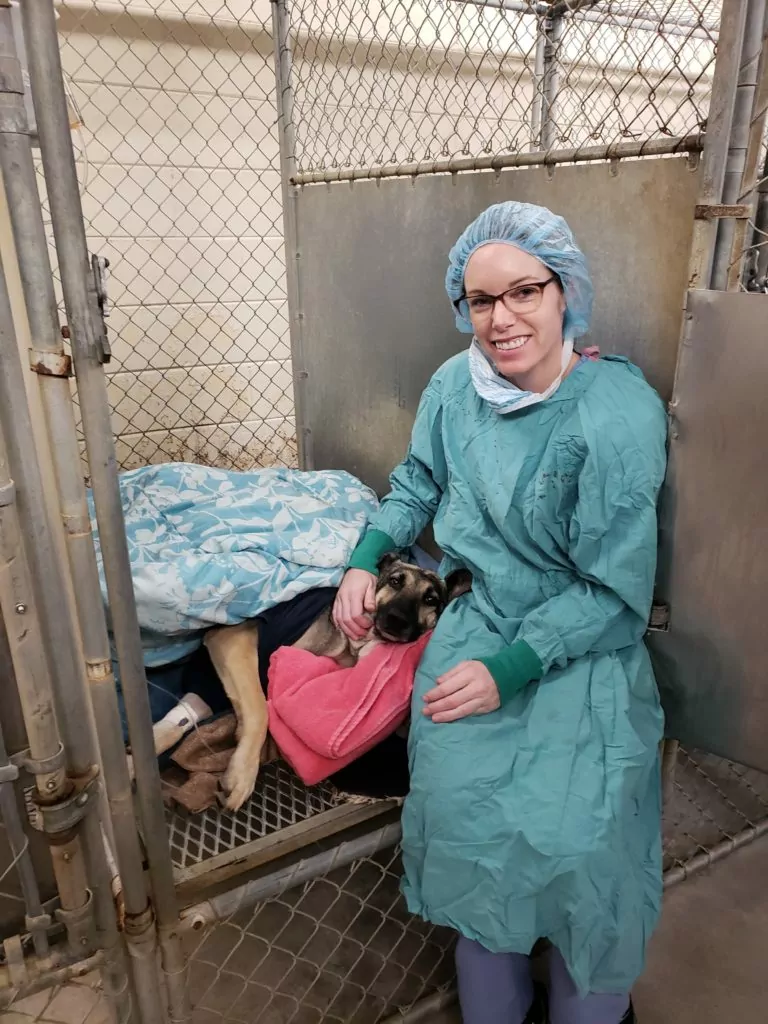
I believe my journeying through veterinary medicine has taken many twists and turns and if I had to give any advice to a veterinary student I would encourage them to keep an open mind. As a student I intended to become an equine surgeon with a focus on lameness. I then found myself with a passion for equine reproduction and from this, I now work in a small animal practice. The plan you have as a student may be completely different in 5 years, or in 10 years. Don’t back yourself into a corner. Embrace the opportunities that come your way and you may find yourself doing something so much more rewarding than you could have ever imagined for yourself.
